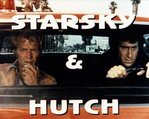The LA Times profiled Dean Fulcher, a Santa Ana homicide detective who has self-published a novel for teens, a book without vulgarity or sex that he describes as "The Hardy Boys meets Nancy Drew." He took the book to Tate Publishing, which charged him $4000 to publish and market his book. But if he sells 5,000 copies, which even he agrees is unlikely, they claim they will reimburse him.
The article doesn’t explore whether he tried to sell the book to a publisher, why he opted to go to a vanity press, or how he is going about marketing his novel…but rather veers into a much more interesting topic: why cops write:
Marilyn Olson, president of the Public Safety Writers Assn., which has more than
50 members across the country, said law enforcement was a field that lent itself
to writing because of its many different elements: technology, crime and
camaraderie."They have a wealth of material," she said. "In many cases,
it’s bottled up and they want to do something with the stories they
have."Many retired police officers, Olson said, write as a way of
staying connected with their old jobs.Others, like Fulcher, do it for
therapeutic reasons."It’s kind of hard to stop thinking about the job,
even on the weekends," he said, adding that he would constantly second-guess
himself about whether he missed key evidence in an unsolved case. "When I get
into this, I don’t even think about work. It’s a good way to escape reality for
a while and get into the story."Joseph Wambaugh, the most famous police
writer, said he started because he simply had stories he needed to get
out.Wambaugh, who joined the Los Angeles Police Department in 1960,
worked as a cop for 10 years before his first novel, "The New Centurions," was
published.It was on the New York Times bestseller list for 36 weeks.
Since then, he has written 15 more books."I was kind of an anomaly, a
freak," the 68-year-old Wambaugh said of his success. "I love to see cops write.
I wish there were more."Although Fulcher encounters a wealth of material
in his job, he doesn’t think it would be right to use it."Dealing with
murders, I get really close to the families," he said. "It’s almost like I feel
I’m being disloyal to them if I use something that happened to them in my
story."

